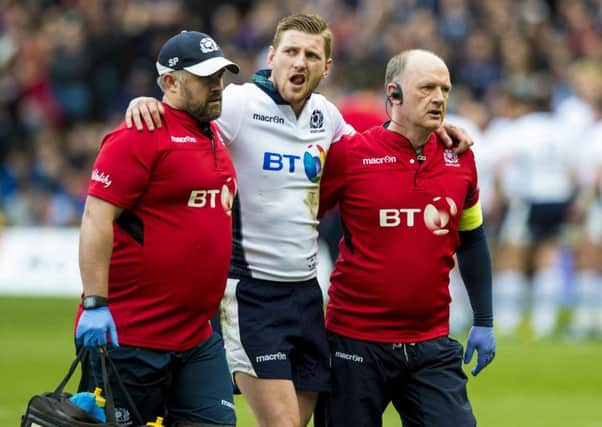NFL admission can have big impact on world of rugby


“The answer to that question,” Miller said, “is certainly yes.”
After years of evasion and outright denial the NFL bosses had bowed to the inevitable and admitted what the rest of the world already knew: playing American football can seriously damage your health.
Advertisement
Hide AdAdvertisement
Hide AdOnly last month one NFL neurosurgeon claimed that the link could not be scientifically proven. The admission has now been publicly aired but already the NFL is rowing back like Sir Steve Redgrave on an ebb tide. A spokesman insisted that Miller was answering a specific question and pointed out that there were plenty of questions left unanswered.
You have to wonder just how much impact Hollywood has had on football’s officialdom. Will Smith’s 2015 film Concussion has raised awareness of the link between multiple brain injuries and chronic traumatic encephalopathy (CTE) to a whole new level even if he didn’t win an Oscar for the role of Dr Bennet Omalu, a forensic pathologist whose work the NFL did its best to ignore.
In its settlement with 5000 former players who brought a class action against the sport’s governing body, the NFL agreed to set aside up to $1 billion to pay those who have suffered brain injury through repeated concussions but refused to admit responsibility. The action is still pending.
Scottish expert Dr Willie Stewart, the leading neuropathologist at Glasgow’s Southern General, argues that it is wrong to view the problem as being confined to one sport.
“It used to be boxing and now all the focus is on American football,” he said yesterday, “but we are fundamentally wrong if we think this problem is linked to one sport or another. It is a problem across sports where there is a regular incidence of head injuries.
“Furthermore if we are considering American football as the ‘gold standard’ of impact sports we are wrong again because rugby players not only play far more matches every season but their careers tend to last longer than American footballers and the incidence of concussions, certainly amongst elite players, is far higher.”
When quizzed as to whether more post-mortem evidence was required to establish the link between CTE and concussion in rugby, as has happened in American football, Dr Stewart was dismissive.
“Not unless you believe that the head injuries in American football are fundamentally different from the head injuries received in rugby,” he argued. “Finding no link between concussions and CTE in rugby players… now, that would be a story!”
Advertisement
Hide AdAdvertisement
Hide AdThe issue won’t go away. On Sunday, Scotland stand-off Finn Russell suffered a rather obvious concussion just four minutes into the match against France although there were no complains from the Scottish camp since the incident happened in what looked like an innocent attempt at a tackle. Russell is a doubt for Scotland’s final Six Nations match in Dublin on Saturday.
Yoann Maestri was castigated when France played Ireland and the French lock appeared to catch Ireland’s stand-off Jonny Sexton off the ball. Sexton has suffered numerous blows to the head and has been advised by one leading Irish rugby pundit to quit the game altogether.
One more serious blow on the head and Sexton may be left with no other option.